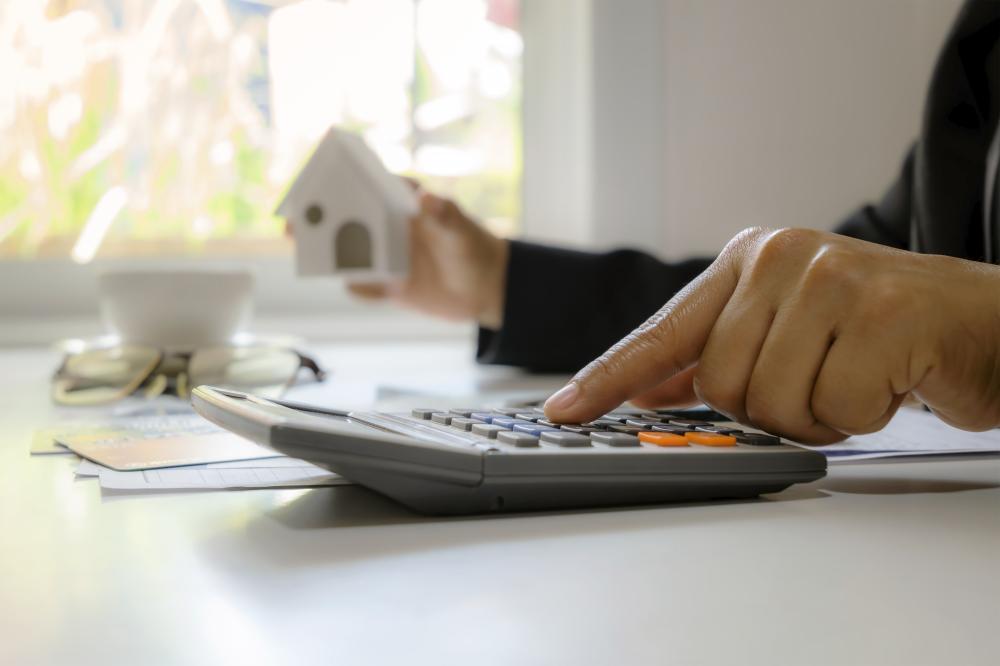Table of Contents
Understanding Stamp Duty and Potential Refunds

As an established entity in the realm of taxation advice, we at Thom Tax have come across numerous cases where individuals and businesses have navigated the choppy waters of the UK’s tax system. One area that often causes confusion is the Stamp Duty Land Tax (SDLT), a significant consideration when purchasing property in the UK.
Stamp Duty is a tax levied on property transactions, and while it’s a straightforward concept on paper, in practice, it can become quite complex. Different rates of SDLT might apply depending on various factors, such as whether you’re a first-time buyer, purchasing additional properties, or even based on the type of property you’re acquiring. This often leads to the potential for overpayment and the subsequent right to a Stamp Duty Refund HMRC credit.
When Might You Be Entitled to a Stamp Duty Refund?
Selling Under Three Years
If you’ve paid the higher SDLT rates for additional properties, you may be entitled to a Stamp Duty Refund if you sell your previous main home within three years of the purchase. This often comes as a surprise to many clients who were unaware that such provisions exist, highlighting the intricacies of tax laws that can easily go unnoticed by the public.
Here at Thom Tax, we’ve seen clients breathe sighs of relief upon realizing that their diligent record-keeping and prompt action can lead to recuperating a substantial sum. It’s all about timing and understanding the rules that govern property sales and SDLT repayments.
Exceptional Circumstances Consideration
Life is unpredictable, and sometimes events occur that are entirely outside your control. For example, if you’ve purchased a new home but couldn’t sell your previous one within the three-year window due to exceptional circumstances like the impact of COVID-19, you may still apply for a Stamp Duty Refund. We’ve personally assisted clients in compiling the necessary evidence and crafting letters to HMRC to ensure that their cases are heard and appropriately considered.
Exceptional circumstances are subjective, but with professional assistance, one can present a compelling case to HMRC. The personal touch that we inject into every case often makes a significant difference, showcasing the human side of tax law that numbers and facts alone cannot convey.
Navigating the Stamp Duty Refund Process
Claiming a Stamp Duty Refund needn’t be a daunting task, though it does demand attention to detail and a thorough understanding of the process. To learn more about stamp duty refund uninhabitable property credits get in touch with us today.
The Importance of Document Preparation
We’ve always stressed to our clients the importance of having all their paperwork in order. When it comes to a Stamp Duty Refund, this means having details of both the property that attracted the higher rates of SDLT and the sold residence. A well-documented history facilitates a smoother claim process and helps avoid unnecessary delays.
Document preparation extends beyond just having the right paperwork. It’s about ensuring the information presented is clear, concise, and directly relevant to the claim. In our experience, a well-prepared document package can be the linchpin of a successful Stamp Duty Refund claim.
Understanding Your Submission Options
Whether it’s online or by mail, submitting your claim for a Stamp Duty Refund can be achieved through different means, fitting various preferences and circumstances. We often guide clients through each step, providing clarity and support whether they choose the immediacy of digital submission or the traditional method of posting their claim.
For some, the digital route is a convenient and fast option. However, for others, submitting physical documents assures them of the tangibility and perceived security that comes with paper forms. Our role is to facilitate either choice with equal proficiency and care.
Special Scenarios for Stamp Duty Refunds
Amidst the ocean of tax regulations, there are specific scenarios where Stamp Duty Refunds become applicable, often to the surprise of many property owners.
Annexes and Mixed-Use Properties
One lesser-known aspect of SDLT is how it’s calculated for properties with annexes or those considered ‘mixed-use’. Clients have come to us unaware that they may have been placed in a higher tax bracket incorrectly. We take pride in our ability to identify such overpayments and assist in recovering the funds due.
The distinction between a single property and multiple dwellings can mean the difference between standard rates and a considerable surcharge. For instance, a property with an annexe might unjustly attract higher SDLT due to being misconstrued as separate dwellings. Clarifying such misconceptions is part of our day-to-day work, ensuring justice in taxation.

Unique Property Situations
There are times when property transactions don’t fit the norm. Take, for example, the purchase of derelict or uninhabitable buildings. In such cases, the standard SDLT rate may not apply, and a Stamp Duty Refund may be warranted. One of our clients was pleasantly surprised when we helped them navigate this niche scenario, leading to a significant refund they hadn’t anticipated.
Our familiarity with tribunals and case law allows us to provide informed advice that can uncover refund opportunities for our clients. It’s about having the right knowledge at the right time and applying it in a way that benefits those we serve.
Factors Influencing Stamp Duty Refund Success
The path to a successful Stamp Duty Refund is paved with various influencing factors. Here’s what we’ve discovered through our years of professional experience.
The Necessity of Timely Action
Timing is often of the essence when it comes to tax refunds. Statutory deadlines are in place for a reason, and we frequently remind clients of the importance of timely action when pursuing a Stamp Duty Refund. It’s not just about meeting deadlines but also about presenting a case while the details are fresh and evidence is readily available.
At Thom Tax, we’ve seen how prompt and well-timed submissions can streamline the process, increasing the likelihood of a speedy resolution and a favorable outcome.
Leveraging Professional Guidance
As with many areas of tax law, the nuances and complexities of claiming a Stamp Duty Refund can be difficult to navigate alone. Professional guidance is invaluable, offering clarity, strategic advice, and peace of mind. We take pride in being that pillar of support for our clients, simplifying the intricate web of tax legislation into actionable steps.
It’s the keen eye for detail and deep understanding of tax laws that set us apart. By connecting with seasoned experts, clients are able to approach the Stamp Duty Refund process with confidence and assurance.
Additional Thoughts on Stamp Duty Refunds
Seeking a Stamp Duty Refund isn’t just about reclaiming what’s rightfully yours; it’s about understanding your journey through the property landscape and mastering the financial nuances that come with it. At Thom Tax, we’ve spent years demystifying the complexities of SDLT, ensuring that our clients’ interests are safeguarded and championing their right to fairness in taxation.
Whether you’re contemplating a property transaction or simply seeking to reclaim overpaid taxes, remember that guidance from seasoned professionals can be indispensable. We’re here to help you every step of the way, armed not just with expertise but with a genuine commitment to bringing clarity and satisfaction to your fiscal matters.

To discuss your Stamp Duty Refund or any tax-related inquiries, please don’t hesitate to reach out to us. Let’s begin the conversation that could lead to a more prosperous financial future.
What is Stamp Duty and when is it applicable?
Stamp Duty, or more formally known as Stamp Duty Land Tax (SDLT), is a tax that comes into play when you’re purchasing a property in the UK. It’s applicable to both freehold and leasehold properties, whether you’re buying outright or with a mortgage. At Thom Tax, we frequently assist clients who are navigating their property transactions, ensuring they’re only paying what’s due and advising them on potential refunds they might not be aware they’re entitled to.
How can I know if I’ve overpaid on Stamp Duty?
Overpayment on Stamp Duty is more common than one might presume, mainly due to the complexity of the tax’s structure. Variables such as being a first-time buyer, purchasing additional properties, or the specific type of property can affect the amount of SDLT payable. We at Thom Tax have developed a keen eye for detail over the years, identifying overpayments by thoroughly reviewing transaction details against the latest tax laws and reclaiming what’s rightfully our clients’.
Are there any time limits for claiming a Stamp Duty Refund?
Indeed, time limits are crucial. For most Stamp Duty Refund claims, you have 12 months from the sale of your previous main home to make the claim if you’re eligible for a refund of the higher rates of SDLT. It’s important to act promptly, as missing the deadline could mean missing out on the refund altogether. Our role at Thom Tax includes reminding clients of these critical dates and helping them to prepare their submissions in good time.
What constitutes ‘exceptional circumstances’ for a Stamp Duty Refund?
‘Exceptional circumstances’ can be quite subjective, but generally, they encompass events beyond your control that prevent you from selling your previous main residence within the typical three-year period. Events such as the COVID-19 pandemic are a prime example. At Thom Tax, we’ve successfully argued on behalf of clients by presenting detailed evidence to HMRC to support their claims under these unprecedented circumstances.
What documents will I need to prepare for a Stamp Duty Refund claim?
Preparation is key when it comes to Stamp Duty Refund claims. You’ll need to have complete records of the property transaction that resulted in the overpayment and, if applicable, details of the sale of your previous main home. This includes contracts, conveyance documents, and a copy of your SDLT return. At Thom Tax, we guide our clients through this process, ensuring that their documentation is thorough and well-organized to facilitate a smooth claim process.
Could my property type affect my Stamp Duty rate?
Absolutely, property type can significantly influence the rate of SDLT that applies. For example, properties with annexes or those classified as ‘mixed-use’ can alter the tax bracket into which your transaction falls. We’ve encountered numerous cases where clients were unaware of these specifications, leading to overpayment. Our job includes shedding light on these gray areas and recovering overpayments for our clients.
How can I submit my Stamp Duty Refund claim?
Submitting a claim for a Stamp Duty Refund can be done either online or by post. Each method has its advantages, and at Thom Tax, we provide comprehensive support regardless of the submission method chosen. We walk our clients through every step, ensuring they’re comfortable and confident with the process.
What are the chances of success when claiming a Stamp Duty Refund?
The chances of a successful Stamp Duty Refund claim hinge on several factors, including the correctness of the initial SDLT payment, the accuracy and completeness of the supporting documentation, and adherence to deadlines. By engaging with professionals like us at Thom Tax, clients can significantly improve their chances. We leverage our expertise to address the complexities of each case, enhancing the probability of a favorable outcome.
Can I get help from Thom Tax even if my case is unique?
We thrive on the uniqueness of each case. Whether it’s a question about a derelict property or a complex transaction that doesn’t fit the mold, our team is equipped to offer tailored advice. We bring our extensive experience with tribunals and case law to the forefront, giving our clients the best chance at success. So, don’t hesitate to reach out, no matter how unique or challenging your case may seem.
How does Thom Tax assist clients in claiming Stamp Duty Refunds?
We begin by offering a free, no-obligation discovery call to understand the specifics of your situation. From there, we meticulously review your property transactions, identify any overpayments, and guide you through the reclaim process. It’s a personalized service, where we handle each step with professionalism and dedication to achieving the best possible outcome for you.
What should I do next if I suspect I’ve overpaid Stamp Duty?
Reach out to us at Thom Tax without delay. With a commitment-free conversation, we can begin to assess your case and advise on the next steps. Remember, time is of the essence, and the sooner we start, the better. We’re here not just with our expertise but with a genuine determination to support your financial wellbeing. Let us help you reclaim what’s yours and set you on a path to a more prosperous financial future.
Stamp Duty Resources
- HM Revenue & Customs: For comprehensive information and guidance on Stamp Duty Land Tax including current rates, relief, and exemption queries directly from the UK Government. https://www.gov.uk/stamp-duty-land-tax
- Money Advice Service: An independent service, set up by the government to help people manage their money, providing free and unbiased advice on Stamp Duty and many other financial matters. https://www.moneyhelper.org.uk/en/homes/buying-a-home/stamp-duty
- Land Registry: Useful for accessing property transaction records, which are vital when calculating or claiming back Stamp Duty Land Tax. https://www.gov.uk/government/organisations/land-registry
- The Law Society: Offers professional guidance on various aspects of property law including Stamp Duty Land Tax, beneficial for understanding legal nuances in the transaction process. https://www.lawsociety.org.uk/en/topics/property/stamp-duty-land-tax
- Citizens Advice: Providing free, confidential information, and advice to assist people with legal, debt, consumer, housing issues, including those relating to Stamp Duty. https://www.citizensadvice.org.uk/housing/moving-and-improving-your-home/stamp-duty/
- Shelter: This charity provides advice and information for all aspects of housing, including buying and selling property, which would cover Stamp Duty issues. https://england.shelter.org.uk/housing_advice/buying_and_selling
- UK Finance: As a trade association for the UK banking and financial services sector, they often provide information on property purchases and associated taxes. https://www.ukfinance.org.uk/consumer-information/mortgages